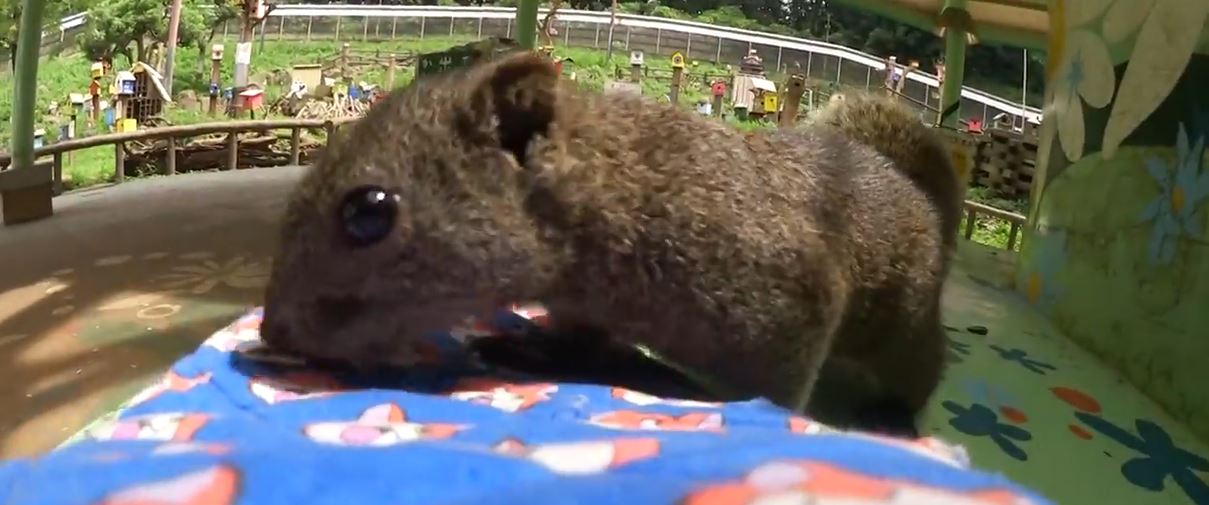Squirrel Repellent

Like all other wild animals, squirrels will find shelter and food anywhere that is convenient. Their ideal location is somewhere that offers food, water, and shelter all within a short distance, meaning that homes and vegetable gardens both offer enticing options. Getting a squirrel out of your home can sometimes be easier than removing them from our property, as your house has physical barriers that can prevent entry. This means that it is common to turn to squirrel repellents as a means of keeping these wild animals away.
Do Repellents Work?
Even though many people use squirrel repellents, that does not mean that they are very effective. In some cases, a repellent may work for a short period of time and this is just as true of store-bought ones as homemade options. While short-term results aren't ideal, they are sometimes all you need as a homeowner to prepare your home or property to keep away squirrels, such as making repairs or installing mesh around your garden.
The thing to remember, however, is that the squirrels have gone through the trouble of finding a great location for a home and getting it comfortable; they will not want to leave just because of an annoying smell or sound. Despite this, there is no harm in trying certain repellents, provided you don't expect them to completely take care of the issue and that they don't contain harmful or dangerous chemicals.
Chemical-Based Repellents
When you look at the typical squirrel repellents that are for sale, you will notice that they are usually chemical-based. In almost all cases, there is no concrete evidence to back up their effectiveness, but they may pose a health risk by letting harmful compounds into the air, soil, or water supply. You will also see many store-bought repellents based on mothballs, and these tend to be ineffective as well.
If you do choose to try a chemical-based repellent or other store-bought option, you will have the choice of liquid or granular options. Liquids are ideal for stopping squirrels from chewing or digging on things such as roofing, gutters, trees, flowers, and trash bags. Granular repellents are better for making a barrier to keep the squirrels away, so consider them for pathways, gardens, the base of trees, or your attic.
Electronic Repellents
You will also find electronic repellents that rely on some combination of motion, noise, or water to deter the squirrels. The thing to remember about this method, however, is that you will need to keep using them forever and in many cases the “ultrasonic repellents” won't even affect squirrels at all.
Mothballs
In addition to being a common component in commercial squirrel repellents, mothballs are also considered a popular homemade squirrel deterrent. Mothballs are actually recommended for a wide range of wild animals, but they typically won't have any effect at all. Wildlife experts have seen people use dozens of pounds of mothballs to keep away squirrels, without any decrease in the squirrel population in their attic or on their property. Worst of all, extended mothball exposure can be harmful to humans.
Natural Homemade Repellents
Since most repellents are not very effective, your best option would be to save some money and try a homemade repellent instead of a buying one. Spicy items are a common option as squirrels, like other wild creatures, don't enjoy spice. This means you can either directly sprinkle cayenne pepper on areas you want to repel squirrels from or create a solution of water or vinegar and peppers, perhaps with a bit of soap. Other suggestions will tell you to place peppermint oil around your yard or create a garlic solution. None of the homemade repellents will be very helpful, however, and you will need to reapply them regularly, including after every rainfall.
Predator Urine
Another commonly recommended squirrel repellent is predator urine, which you can find sold in stores or online. Unfortunately, these tend to work as poorly as the other repellents and many wildlife experts will actually tell you they haven't ever seen success with these products. It may be worth encouraging your dog or cat to do their business on your property to see if this scares away the squirrels, but in most cases, buying predator urine will simply waste your money.
What To Do Instead
Since squirrel repellents aren't typically effective, it is common to wonder what you should be doing to keep squirrels away. The best method is to take away any items that may attract the squirrels to your yard. This includes fallen bird seed, fruits, acorns, nuts and berries as well as pet food. While removing attractants, also make sure your garbage can is securely closed with a squirrel-proof lid and consider swapping your current birdseed for a type squirrels don't like as much. You will then want to use the exclusion method to get the squirrels out of your home, walls, or attic or consider trapping and relocating them.
Read the How to get rid of squirrels page for helpful information and to learn more about Squirrel Repellent

